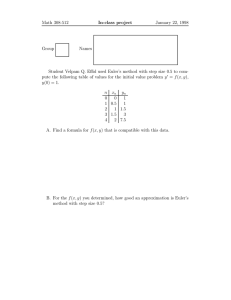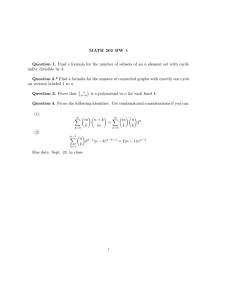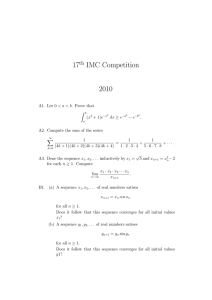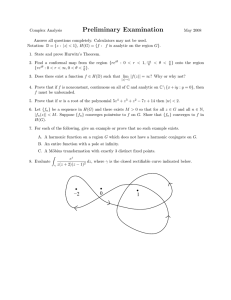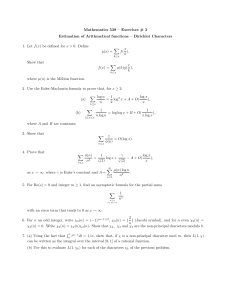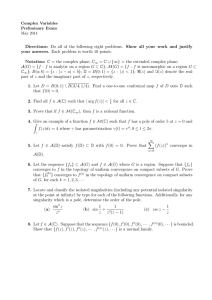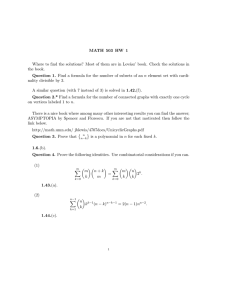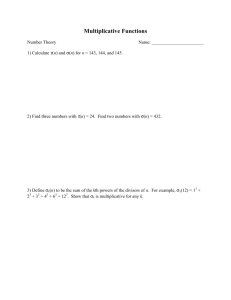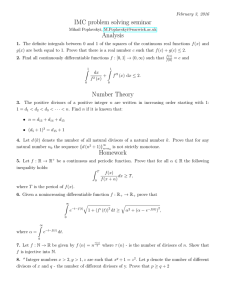Mathematics 539 – Exercises # 2 Dirichlet series and Euler products µ
advertisement
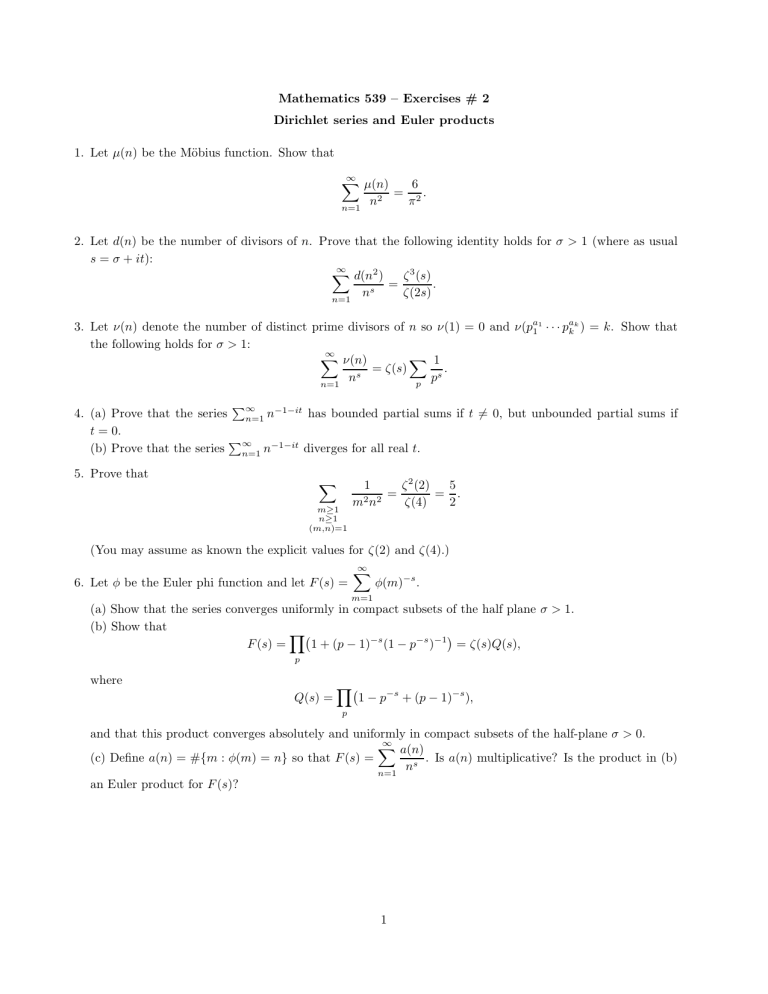
Mathematics 539 – Exercises # 2
Dirichlet series and Euler products
1. Let µ(n) be the Möbius function. Show that
∞
X
6
µ(n)
= 2.
2
n
π
n=1
2. Let d(n) be the number of divisors of n. Prove that the following identity holds for σ > 1 (where as usual
s = σ + it):
∞
X
ζ 3 (s)
d(n2 )
.
=
ns
ζ(2s)
n=1
3. Let ν(n) denote the number of distinct prime divisors of n so ν(1) = 0 and ν(pa1 1 · · · pakk ) = k. Show that
the following holds for σ > 1:
∞
X 1
X
ν(n)
=
ζ(s)
.
ns
ps
p
n=1
P∞
4. (a) Prove that the series n=1 n−1−it has bounded partial sums if t 6= 0, but unbounded partial sums if
t = 0.
P
−1−it
diverges for all real t.
(b) Prove that the series ∞
n=1 n
5. Prove that
X
m≥1
n≥1
(m,n)=1
5
ζ 2 (2)
1
= .
=
m2 n 2
ζ(4)
2
(You may assume as known the explicit values for ζ(2) and ζ(4).)
∞
X
6. Let φ be the Euler phi function and let F (s) =
φ(m)−s .
m=1
(a) Show that the series converges uniformly in compact subsets of the half plane σ > 1.
(b) Show that
Y
1 + (p − 1)−s (1 − p−s )−1 = ζ(s)Q(s),
F (s) =
p
where
Q(s) =
Y
1 − p−s + (p − 1)−s ),
p
and that this product converges absolutely and uniformly in compact subsets of the half-plane σ > 0.
∞
X
a(n)
. Is a(n) multiplicative? Is the product in (b)
(c) Define a(n) = #{m : φ(m) = n} so that F (s) =
ns
n=1
an Euler product for F (s)?
1
